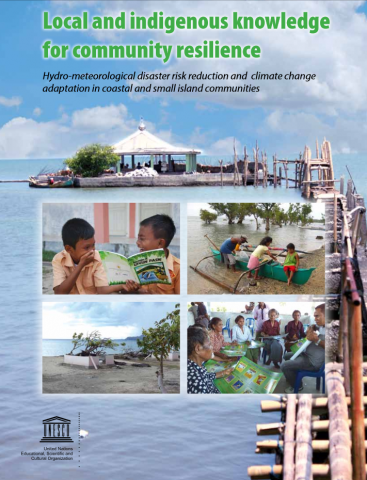Local and Indigenous Knowledge for Community Resilience


Coastal communities living in archipelago countries and small island states in Asia are particularly vulnerable to the impacts of hydro-meteorological hazards such as storms, droughts, landslides, and floods. Environmental degradation such as deforestation, desertification, biodiversity loss, soil erosion, and climate change, as well as social factors such as poverty and inequality, further compound their exposure to such hazards and make these communities extremely vulnerable to disasters. Disaster risk reduction efforts in recent years are increasingly focusing not only on the hazard itself, but on the risks surrounding the hazard and the underlying components of vulnerability which can contribute to turning a hazard into a disaster. An important factor that can increase the resilience of communities is their local knowledge.
The primary audience for this publication is national and local government entities and communities interested in promoting the use of local and indigenous knowledge and willing to take actions to integrate such knowledge with science and technology to increase coastal community resilience. Experts, academics and practitioners working in the fields of disaster risk reduction and climate change adaptation will also find the tools and recommended actions in the policy briefs useful, in their efforts to integrate local and indigenous knowledge in their work.
Hiwasaki, L., Luna, E., Syamsidik, Shaw, R. 2014. Local & indigenous knowledge for community resilience: Hydro-meteorological disaster risk reduction and climate change adaptation in coastal and small island communities. Jakarta, UNESCO, 60 pp.
